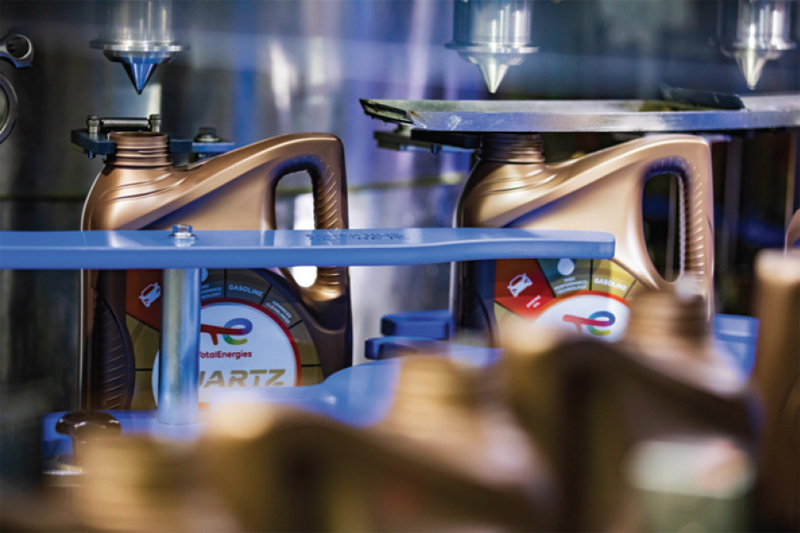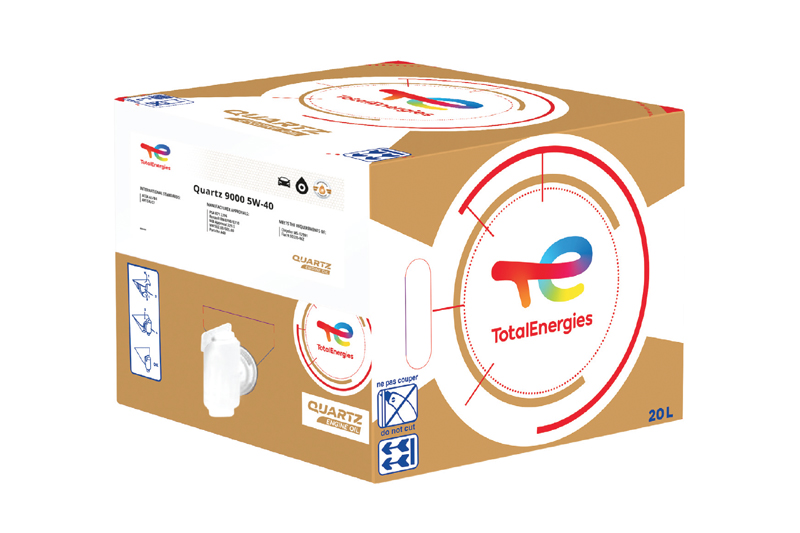Navigating the world of engine oil selection

The mushrooming of lubricant specifications is a genuine pain point for both you and garages, independents in particular, according to David Valentyne, business development manager at TotalEnergies Marketing UK. Here, the company outlines how to navigate the complex landscape of engine oil selection.
Amid escalating business pressures, such as supply chain disruptions and increasing part costs, are you facing challenges in balancing a diverse inventory while managing expenses and minimising dead or overstocked items?
In a bid to service various vehicle types, engine ages, and driving conditions, there is a constant need to cater to a diverse range of engine oil specifications encompassing different viscosities, OEM and regulatory requirements, and end-user preferences.
Not only is keeping up with the evolving technical and chemical detail a challenge, so to is being able to stock and/or quickly and simply get access to the right product at the right time for the end-user.
As a result, you are probably looking at ways to cover more of the car parc with fewer products, rationalising inventory and maintaining agility in response to changing OEM and regulator demands. For us at TotalEnergies, this has been a central aim of our research and development and product formulation strategy, as we seek to help customers do more, more efficiently.
Key trends shaping engine oil selection:
Clearly you and garages will need to retain variety in ranges, which is why space utilisation is a fundamental consideration. To put it simply, trying to cover too many bases will see you spread yourself too thinly with floorspace/shelf space wasted with products that may quickly become obsolete.
To thrive in this dynamic landscape, you must stay abreast of key trends shaping engine oil selection.

Prioritising engine-care and fuel-efficient functionality
A survey run by TotalEnergies in 2023 found that nearly half of UK drivers would be willing to pay more for vehicle maintenance products that extend the lifespan of an engine (46%) or improve fuel consumption (45%).
By stocking lubricants that comply with the latest standards for fuel economy, you can cater to the growing demand for cost-effective solutions and end-user preferences for products, which help to reduce the carbon footprint of motoring.
For example, our new generation Quartz range of engine lubricants enhance engine cleanliness – and boost engine protection – while also improving fuel efficiency. Not only can these cut fuel costs and reduce emissions, but they also improve engine performance and lifespan.

Staying ahead of the ‘compliance curve’
Engine technology is constantly evolving, and you need to ensure oil offerings meet or exceed the specifications required by regulators and OEMs.
Similarly, government bodies, like the EPA and EU, are continuously introducing stricter emission regulations, while REACH (Registration, Evaluation, Authorisation and Restriction of Chemicals) identifies and restricts the use of substances deemed harmful to human health or the environment, both of which can fundamentally alter engine oil formulation to comply with these standards. All these contribute to a widening range of lubricant specifications defined by the likes of ACEA.
Adhering to formulation or manufacturer requirements is crucial. Failing to comply not only risks voiding warranties but can also render dead stock unsuitable for sale or result in excess inventory due to attempts to meet various manufacturer specifications.
Partnering with suppliers that are working at the edge of product innovation, hand-inglove with the relevant industry bodies setting the agenda for the engine oil sector, means you will need fewer products to cover the same or more of the car parc. Our Quartz range, for example, has secured OEM recommendations covering around a third of the UK’s car parc, while OEM approvals take this up to almost 100%. This helps you to stock fewer products with more coverage, thereby reducing the total number of units required.

Embracing sustainable practices
As the automotive sector embraces sustainability, driven by both regulations and endcustomer demand, stocking vehicle maintenance products, which help to achieve carbon reduction goals, is a smart environmental and commercial choice.
Offering environmentally responsible options, like oils formulated with recycled materials and packaged in biodegradable, compostable, or recyclable materials, demonstrates commitment to sustainability and aligns perfectly with today’s ecominded consumers and their technicians.
Look for products that minimise environmental impact throughout their lifecycle, from production to disposal. Quartz is spearheading efforts to reduce plastic usage by incorporating recycled and recyclable materials in its packaging. For instance, the Quartz box boasts an 86% reduction in plastic compared to conventional packaging, opting for recyclable cardboard instead. This innovative approach helps reduce waste, boost efficiency, and minimise the carbon footprint.
Smart logistics and packaging
Choosing engine oils packaged in lightweight containers can significantly improve efficiency for both you and your customers. Lighter packaging reduces storage space requirements, simplifies transportation, and minimises the environmental impact associated with product distribution. The Quartz box’s modular packaging means 20% more volume per pallet, increasing efficiency while decreasing shipping fees.
Conclusion
Looking ahead, you can navigate the complex world of lubricant selection with confidence by staying ahead of the innovation and compliance curve, embracing key trends that cater to diverse customer and engine needs, and implementing effective inventory strategies to cover more of the car parc with fewer products.








